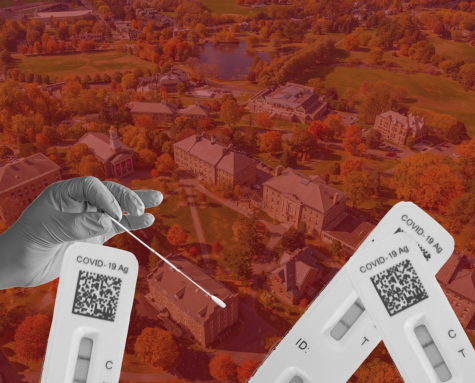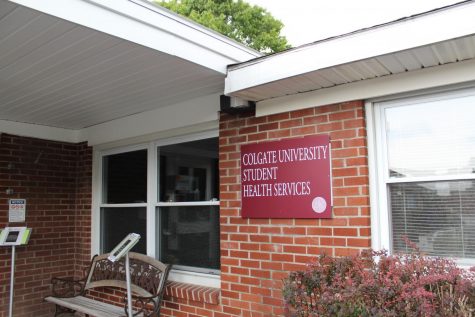Library Services Go Remote with Students at Home
In response to the COVID-19 pandemic, librarians work to digitize materials for remote learning.
Librarians are working to make digital materials available for students and professors as work continues remotely.
After Governor of New York Andrew Cuomo signed the ‘New York State on Pause’ Executive Order on March 20, which mandates the closure of all non-essential services across New York State, Colgate’s Library Services altered their plan for resources and support of students and faculty in the transition to online learning.
In their initial response to the COVID-19 pandemic and transition to remote learning, Library Services had planned to offer PDF scans of book chapters and other texts to provide students, faculty and staff with the resources to which they may still need access. In compliance with new state regulations, Library Services was allowed to grant one library employee to remain at work in order to scan materials and provide pick up access for students, faculty and staff. The current borrowing services plans are to remain as long as one employee will have in-person access to library resources.
“In cooperation with our Acquisitions, Borrowing Services and Cataloging teams, we are digitizing materials as fast as we can for use in research and faculty teaching,” Head of Borrowing Services and Assessment and Associate Professor in the University Libraries Heidi Ziemer said.
Ziemer added that the library has extended the loan period until July 3, 2020, providing students, faculty and staff with extra time to return their reserved items without penalties.
“As of now there is no limitation on the number of items students can request to be digitized, but we ask that they search our catalog and check Moodle to make sure that has not already been done,” Ziemer said.
In addition to borrowing services, the library staff members are still offering research support and assistance through the use of various virtual platforms.
“We are happy that the Appointlet one-on-one help scheduling system has been successfully in place for a while now. We will continue answering students’ research questions, just remotely instead of face-to-face…thankfully our closure is not as disruptive to scholarship as a situation like this would have been 20 years ago,” Associate University Librarian Steve Black said.
Sophomore Ellen Sojka said she used these resources in order to gain access to imperative information for research required in her neurochemistry course.
“I now have access to all the articles I would on campus… even in the week we were transitioning out of Colgate, I received my requested article PDFs within a day. Our libraries have been really helpful by managing ILL to help us continue our research as efficiently as possible,” Sojka said.
Head of Research and Instruction and Associate Professor in the University Libraries Joshua Finnell said the library’s previously established online systems, including Appointlet and InterLibrary Loan, were well-equipped to handle the transition to remote instruction.
“In many ways, our instruction and reference services were primed and ready for remote access from anywhere in the world,” Finnell said. “Our librarians are providing library instructions via Zoom and/or recording sessions for various classes. In addition, we are available to help identify open-access articles or streaming rights for individual films.”
Library staff have also worked to make sure that staff who need laptops or computers to work remotely have access, while social distancing and safety measures remain imperative and intact. Library staff members commended how quickly these resources were made accessible to students while maintaining high standards of safety.
“I am very proud of the faculty and staff in the University Libraries for their hard work and support of the University’s academic mission and the safety of our users in this challenging time,” University Librarian and Professor in the University Libraries Courtney Young said.
Black stressed the impact the COVID-19 pandemic has had on members of library staff and the campus itself.
“All along our priority has been to serve students and faculty the best we can, while protecting the safety of our employees… An empty library is a lonely place. It has been even quieter than it is during the summer,” Black said.
Nicole Dienst is a senior from Westport, CT, studying English, economics and environmental studies. Prior to serving as Executive Editor, she has held...











